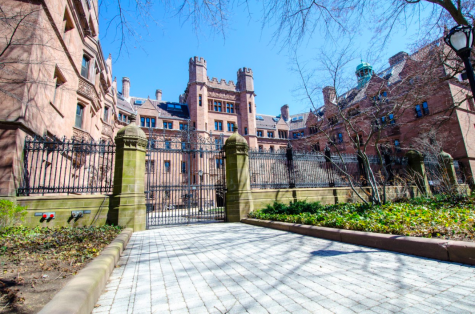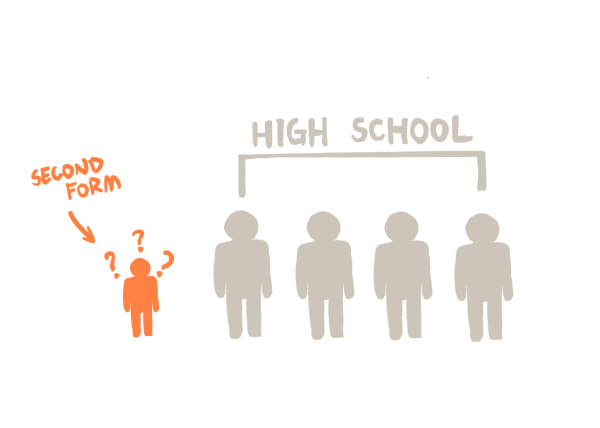The Conservative Case for Bernie Sanders
“All accumulation, therefore, of personal property, beyond what a man’s own hands produce, is derived to him by living in society; and he owes on every principle of justice, of gratitude, and of civilization, a part of that accumulation back again to society from whence the whole came.”
– Thomas Paine
For just a moment, tear your gaze from Donald Trump, and look across the aisle at the other 2016 candidate from Brooklyn: he has wildly unique hair, uses the word “ ’uge” in nearly every speech, and denounces the skewed concentration of wealth in the United States with vigor. And compared to Donald Trump, self-described “democratic socialist” Senator Bernie Sanders is looking increasingly alluring to actual conservatives. It is an aberration that The Atlantic, among other publications, has noticed. Bernard has some mysterious appeal to disgruntled Republicans.
One cause of that appeal must be his sincerity. Bernie Sanders is astonishingly consistent; his position on nearly every issue has not wavered since he last brushed his hair decades ago. His few shifts, as with guns, have only occurred after massive and coordinated assaults from the Clinton camp. And his years of representing a rural, pro-Second Amendment state like Vermont is highly reassuring to conservatives despite that shift. Sanders is one of the last American politicians at his level of power to possess that mysterious quality known as “authenticity.” It is a force that Ronald Reagan, with his confident denunciations of Soviet aggression and Federal governmental expansion, channeled into acquiring broad, bipartisan appeal. Is it so unimaginable that Sanders might be able to pull off the same feat?
But wait, you may say, Bernie Sanders is a democratic socialist. How could any self-respecting “conservative” ever support him? It’s a fair point. But it rests on a faulty definition of conservatism.
Though “right-wing” is often used interchangeably with conservatism, they are in fact distinct labels. While rightwing political movements have effected radical, even tyrannical, changes in government, conservatism at its purest merely seeks the preservation of existing or previous states of being. In America, conservatives wish to maintain and protect the independence of the people against their governments, and of the states against the national government. They idealize the pioneer spirit of past Americans, and revere the Founding Fathers for their understanding of the importance of liberty (even if that right was extended to only a few).
Herein lies the key to Bernie Sanders’ conservative appeal: liberty. Those who brought about and executed the Revolution—from its famed leaders to the lowly farmer with musket in hand—understood the almighty power of property. Their ideas of self-governance were rooted in the Enlightenment, with its radical concept of “natural rights.” And property was the ultimate guard against the tyrannical erosion of those rights. With productive property, a citizen could be independent of a feudal lord or the state. Without, he was reduced to such a state of dependence as to make democracy a farcical exercise. In the face of a widening wealth gap, perpetual government entitlements have become a tool for controlling and subverting democracy by making the citizenry ever-more dependent on their rulers. And since the Ford Administration, the United States has witnessed a dramatic concentration of wealth and income at the highest levels of society. The Walton family alone (descendants of Walmart founder Sam Walton) have more wealth than the bottom 41 percent of Americans. And even if conservatives have no ethical or moral qualms about that inequality (which seems odd given the importance of Christianity to most conservatives), we must recognize the existential threat it poses to liberty. For with the increasingly thin-spread nature of property for the overwhelming majority of our citizens, democracy becomes a dangerous exercise. The immortal author and thinker T-Paine advocated a universal minimum income for this reason. Inequality breeds Trumps. It encourages sitting US presidents to try to pack the Supreme Court. And at its worse, inequality can spawn a revolution. If the threats of dictatorship, violation of separation of powers, and proletariat uprising do not scare you, you are certainly not a “conservative.”
Bernie Sanders may have several positions simply horrifying to conservatives, and he may seek more spending than is either necessary or proper for democratically reducing inequality. He may not readily admit that the federal government’s incessant expansion into every aspect of its citizenry’s lives is not just a burden, but a danger. But that’s why we have the separation of powers. Congress and a currently-conservative-leaning-SCOTUS will keep Bernie in check should he win. But the overall tone and message set by the election of Senator Sanders is what really matters if we are to prevent the violent and destabilizing corrections of undemocratic wealth redistribution. And we know what Sanders is selling. Donald Trump is not so. Donald Trump is fueled by a crowd of bitter and resource-deprived citizens reminiscent of Doctor Zhivago’s out-of-tune mobs.
So in light of the increasingly-lopsided distribution of wealth in this country, a distribution often exacerbated by Big Government, and given the terrifyingly angry tone Trump’s base has taken on, conservatives and moderates alike face a monumental decision: should we bite the bullet and allow Sanders to take steps to rectify the situation both parties have led us into, or will we be so unyielding as to martyr ourselves and our divinely-blessed nation? To be conservative is to try to stop harmful deviations from the status quo, to fight against government overreach, and both of these are inevitable if we don’t do something about inequality soon. It’s an unfortunate fact, but a fact nonetheless.
So I urge those who are not textbook New England Progressive Liberals to simply consider giving your vote to Bernie, not to destroy the America that we know and love, the one Ronald Reagan so inspired, but to save it from the forces of popular despotism. And that, I think, is textbook conservatism.










Eric Stewart • Feb 12, 2016 at 2:29 AM
While I admire the author for a very well written opinion article, let us not forget that those who led our nation to freedom never considered the notion that liberty was predicated on owning property, or that government should take action because some had too little or others had too much. It may not have been “Big Government” at the time, but did the powers that be conspire to enrich George Washington to be a one-percenter when he accumulated over 58,000 acres of land? No, in fact the what really got the founding fathers heated was the excessive taxation imposed upon them.
As for the Walton family, yes they are quite wealthy. The freedom that encourages capitalism allowed the family to build a successful business that provides substantial tax revenue for the country and millions of jobs. Are Christians, as you imply, wrong for not being envious enough of their wealth to the point they demand the Walton family hand over their legally earned property? Mr. Hough’s judgmental statement regarding Christians is perplexing in that Christians believe in charity, not seizing another’s property. To read this opinion, it appears the logic is if you’re not angry enough to demand the forceful seizure of property you’re not with the Bernie camp and thus a valid target; and, oh, by the way you’re not a good Christian.
In regard to stoking fears of packing the Supreme Court, we only need look back to President Franklin D. Roosevelt and his attempt to pack the court. HIs reason for doing so was to get favorable rulings in court pertaining to challenges to his programs, many being socialistic in nature. Thus, he wanted to add six more justices of his choosing. We’re to believe it’s worth the risk to elect Sanders because the court currently leans (barely) right? With three justices over the age of 80 within the next six-months it’s not a stretch to say the next president will likely be able to tip the scales a bit in the direction of his or her choosing. I don’t see a Sander’s packed court being our saving grace when he makes his money grab.
Mr. Hough must have mistaken his candidates while observing their supporters. This writer is not a fan of his, but do you hear Trump promising “free this and free that”? While both Trump’s and Sander’s crowds are angry and worked up, it’s not the Trump fans who are clamoring for more handouts. They’re bitter, that’s for sure, but the one’s who want more of other people’s stuff are cheering for that guy who spent his honeymoon in the Soviet Union.
Yes, conservatives are against government overreach. Conservatives believe in personal responsibility, limited government, free markets, and individual liberty. They believe the role of government should be to provide people the freedom necessary to pursue their own goals. Mr. Sanders is a threat to those ideals and is the last candidate any conservative should want leading this great nation.
Adam Smith • Feb 13, 2016 at 5:38 PM
This man spits facts.